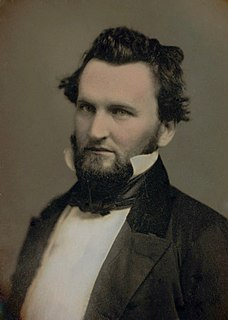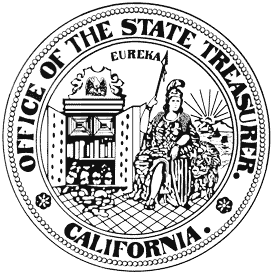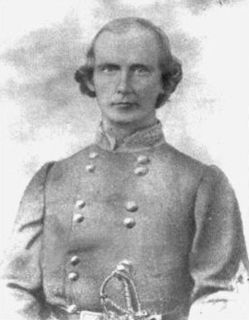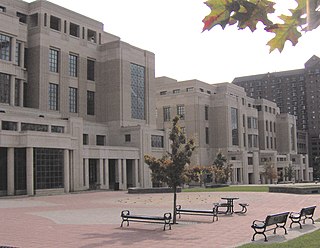The 1840s was a decade that ran from January 1, 1840, to December 31, 1849. Throughout the decade, many countries worldwide saw many revolts and uprisings, with the most prominent ones happening in 1848. Aside from uprisings, the United States began to see a shifting population that migrated to the West Coast, as the California Gold Rush ensued in the latter half of the decade.

The 1972 United States presidential election was the 47th quadrennial presidential election. It was held on Tuesday, November 7, 1972. Incumbent Republican President Richard Nixon defeated Democratic Senator George McGovern of South Dakota.

The Compromise of 1850 was a package of five separate bills passed by the United States Congress in September 1850, which defused a four-year political confrontation between slave and free states on the status of territories acquired during the Mexican–American War (1846–1848). The compromise, drafted by Whig Senator Henry Clay of Kentucky and brokered by Clay and Democratic Senator Stephen Douglas of Illinois, reduced sectional conflict, although controversy eventually arose over the Fugitive Slave provision. Although the compromise was greeted with relief, each side disapproved of some of its specific provisions:

Edward Clark was the eighth Governor of Texas. His term coincided with the beginning of the American Civil War.

The Mexican Cession is the region in the modern-day southwestern United States that Mexico ceded to the U.S. in the Treaty of Guadalupe Hidalgo in 1848 after the Mexican–American War. This region had not been part of the areas east of the Rio Grande which had been claimed by the Republic of Texas, though the Texas annexation resolution two years earlier had not specified the southern and western boundary of the new State of Texas. The Mexican Cession was the third largest acquisition of territory in US history. The largest was the Louisiana Purchase, with some 827,000 sq. miles, followed by the acquisition of Alaska.

John Neely Johnson was an American lawyer and politician. He was elected as the fourth governor of California from 1856 to 1858, and later appointed justice to the Nevada Supreme Court from 1867 to 1871. As a member of the American Party, Johnson remains one of only three members of a third party to be elected to the California governorship.
Volney Erskine Howard was an American lawyer, statesman, and jurist.

The California State Treasurer is responsible for the state's investment and finance. The post has narrower responsibilities and authority than the California State Controller. Some of the responsibilities include issuing bonds and notes for the state, and trustee, as well as registrar and paying agent for all general obligation bonds and certain revenue bonds investment of temporarily idle state money. The administration of the state's budgets, financial analyses and planning, money allocation, and economic research is under the California Department of Finance.

The Keeper of the Privy Purse and Treasurer to the King/Queen is responsible for the financial management of the Royal Household of the Sovereign of the United Kingdom.

William Semple Green was a California pioneer, a steamboat captain, mail carrier, surveyor, newspaper publisher, writer, legislator, United States Surveyor General for California, California State Treasurer, and irrigationist.

William Wallace Smith Bliss was a United States Army officer and mathematics professor. A gifted mathematician, he taught at West Point and also served as a line officer.

The King's Wardrobe, together with the Chamber, made up the personal part of medieval English government known as the King's household. Originally the room where the king's clothes, armour, and treasure were stored, the term was expanded to describe both its contents and the department of clerks who ran it. Early in the reign of Henry III the Wardrobe emerged out of the fragmentation of the Curia Regis to become the chief administrative and accounting department of the Household. The Wardrobe received regular block grants from the Exchequer for much of its history; in addition, however, the wardrobe treasure of gold and jewels enabled the king to make secret and rapid payments to fund his diplomatic and military operations, and for a time, in the 13th-14th centuries, it eclipsed the Exchequer as the chief spending department of central government.

Hamilton Prioleau Bee was an American politician in early Texas; he was secretary of the Texas Senate in 1846. He served nearly 10 years as representative to the state house beginning in 1849, and for one term as Speaker of the Texas House of Representatives.
Slavery in colonial California began with the systematic enslavement of indigenous Californians. The arrival of the Spanish colonists introduced chattel slavery and involuntary servitude to the area. White settlers from the Southern and Eastern United States brought their systems of organized slavery to California.

The 1900 New York state election was held on November 6, 1900, to elect the Governor, the Lieutenant Governor, the Secretary of State, the State Comptroller, the Attorney General, the State Treasurer and the State Engineer, as well as all members of the New York State Assembly and the New York State Senate.
The San Antonio–El Paso Road also known as the Lower Emigrant Road or Military Road was an economically important trade route between the Texas cities of San Antonio and El Paso between 1849 and 1882. The road carried mail, freight and passengers by horse and wagon across the Edwards Plateau and dangerous Trans-Pecos region of West Texas.

The 1968 United States presidential election in New Mexico took place on November 5, 1968. All fifty states and The District of Columbia, were part of the 1968 United States presidential election. New Mexico voters chose four electors to represent them in the Electoral College, who voted for president and vice president.

The 2014 California State Treasurer election was held on November 4, 2014, to elect the State Treasurer of California. Incumbent Democratic Treasurer Bill Lockyer was term-limited and ineligible to run for re-election to a third term in office.

The 2014 California State Controller election was held on November 4, 2014, to elect the State Controller of California. Incumbent Democratic Controller John Chiang was term-limited and ineligible to run for re-election to a third term in office.

The 1968 United States presidential election in Texas was held on November 5, 1968. All 50 states and the District of Columbia, were part of the United States presidential election of 1968. Texas chose twenty-five electors to represent them in the Electoral College, who voted for president and vice president.


















